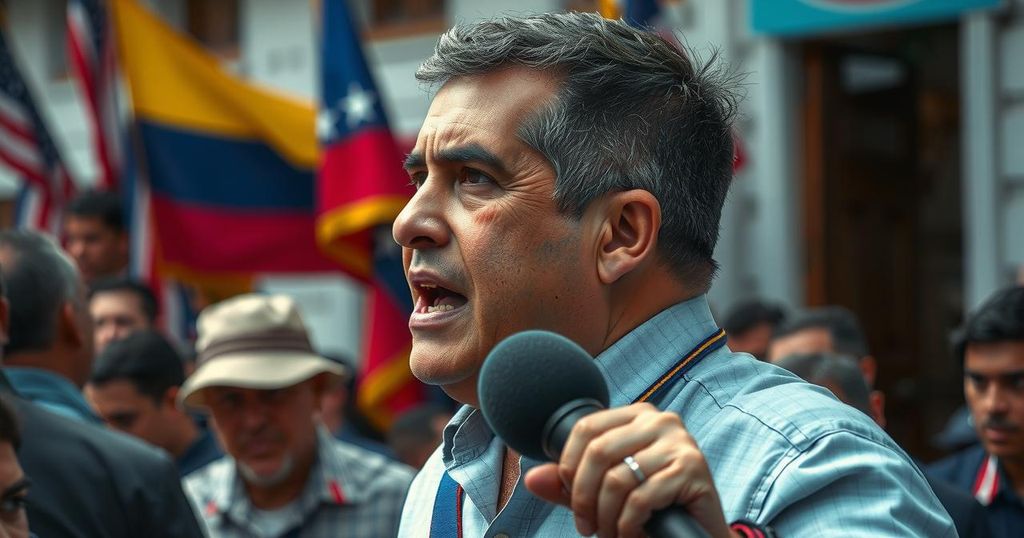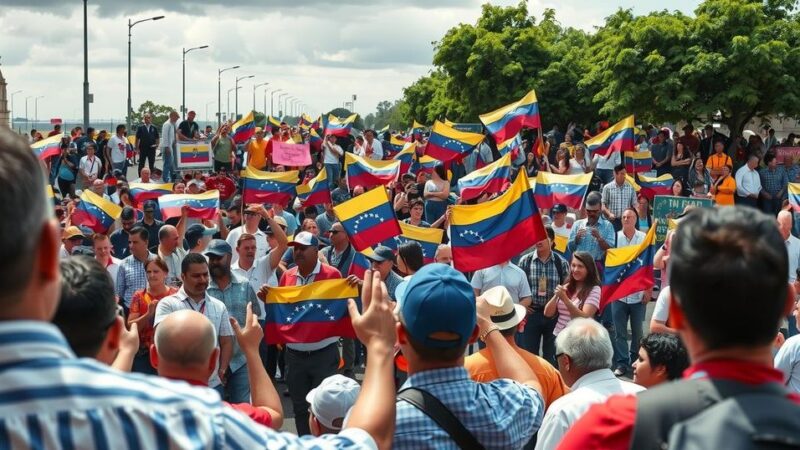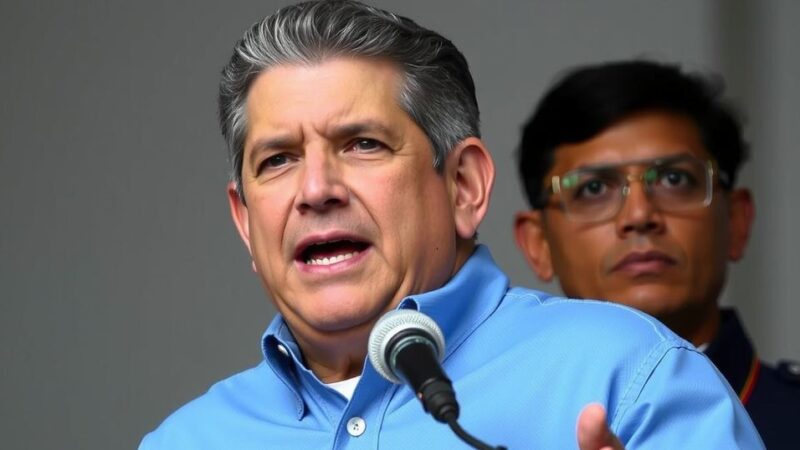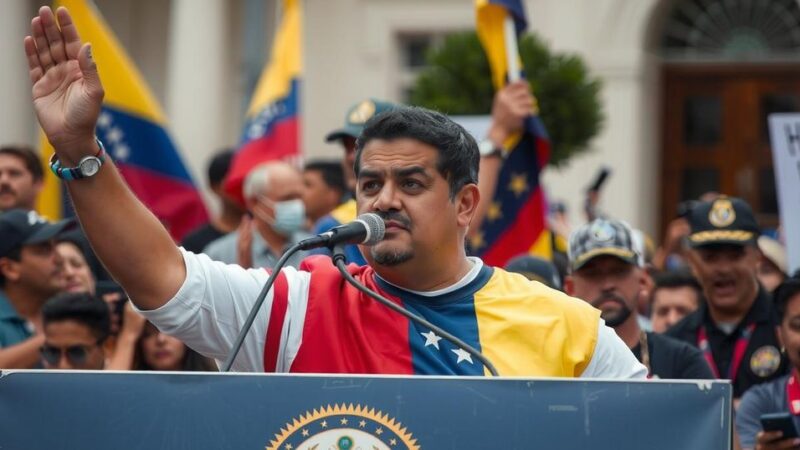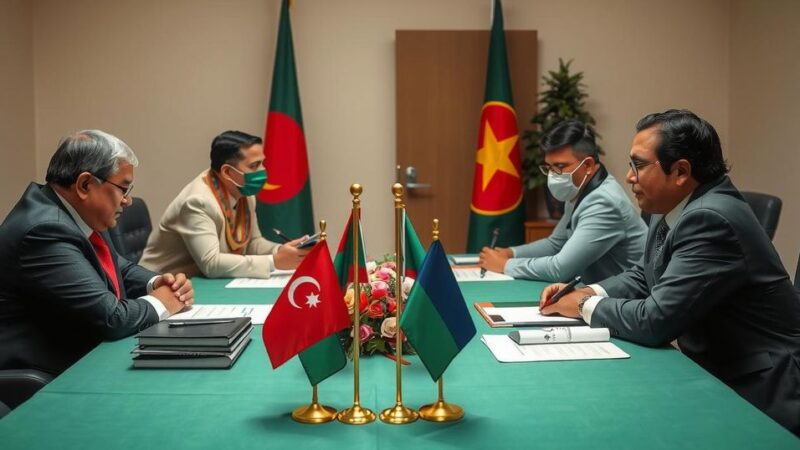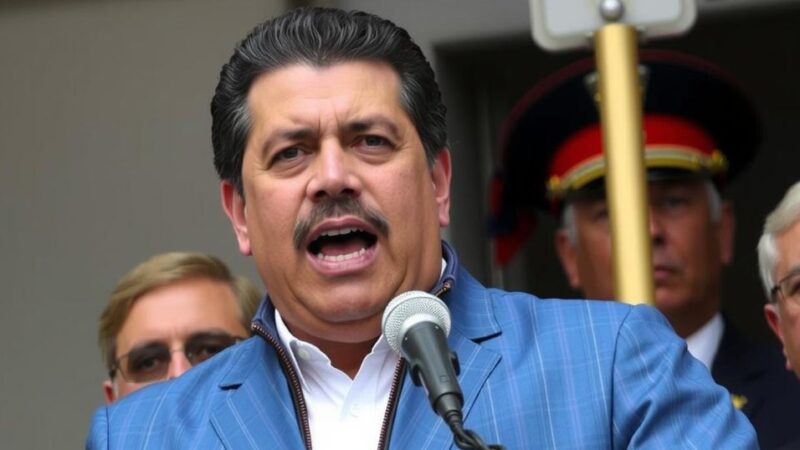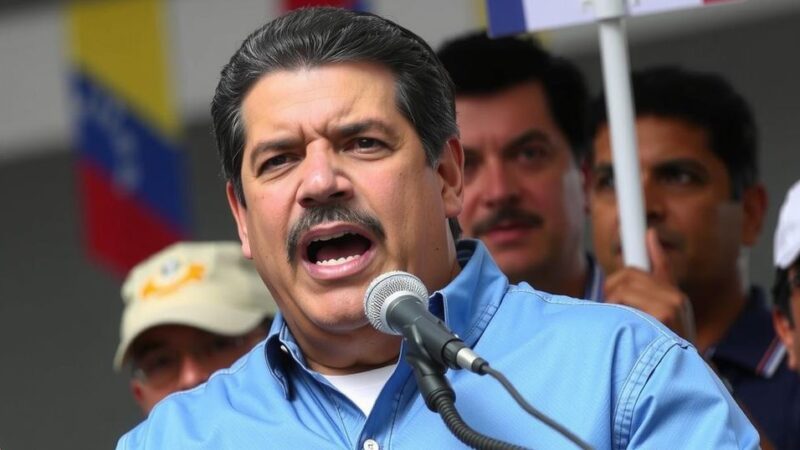Nicolás Maduro will be inaugurated for a third term despite widespread accusations of electoral fraud and oppression of dissent in Venezuela. His regime faces domestic and international condemnation as it tightens its grip on power, with opposition leaders facing imprisonment or exile. María Corina Machado’s recent activism emphasizes the ongoing struggle for democratic reform amidst a climate of fear and repression.
On Friday, Nicolás Maduro, the Venezuelan president, is poised to take the oath of office for a contentious third term despite widespread denunciations regarding the legitimacy of his recent electoral victory. His regime, notorious for its harsh governance and the dire state of the nation characterized by hyperinflation, widespread starvation, blackouts, and an exodus of millions, appears intent on solidifying its authority amidst significant oppression of dissent.
Maduro’s administration faces a strong global condemnation, yet he will return to the Miraflores palace amid enhanced security measures that include riot-equipped police and military presence across the streets of Caracas. As domestic opposition leaders face severe repression—some forced into exile while others remain hidden—Maduro’s grip continues to tighten, undermining the aspirations of many Venezuelans for democratic governance and reform.
Opposition leader María Corina Machado made an impactful yet risky return to public life, engaging in a rally against the Maduro government, where she was met with cheers for liberty from her supporters. However, her subsequent brief detainment illustrates the ongoing peril for activists in Venezuela, highlighting the challenges in mobilizing against an oppressive regime.
Moreover, her call for reform resonates in an environment where many citizens risk imprisonment simply for voicing grievances, underscoring the pervasive fear regarding political dissent in Venezuela today.
This article reflects the ongoing political crisis in Venezuela under the administration of Nicolás Maduro, who has faced substantial international criticism for his authoritarian rule and alleged election fraud. Despite the vast challenges facing the country, including economic collapse and humanitarian crises, Maduro remains entrenched in power, relying on severe repression of opposition and civil liberties to maintain his regime. The backdrop of a struggling democracy underscores the complexities surrounding Venezuela’s future, further complicated by the involvement of foreign prisoners and international diplomacy.
In summary, Nicolás Maduro’s impending inauguration for a third term exemplifies the persistent challenges facing Venezuela as it grapples with autocratic rule amidst economic hardship and humanitarian crises. The crackdown on dissent, notably against prominent opposition leader María Corina Machado, demonstrates the significant risks involved in political activism under his regime. As Maduro seeks to strengthen his grip on power, the aspirations for democratic governance among the Venezuelan populace remain under severe threat, highlighting the urgent need for international attention and action.
Original Source: www.nytimes.com

